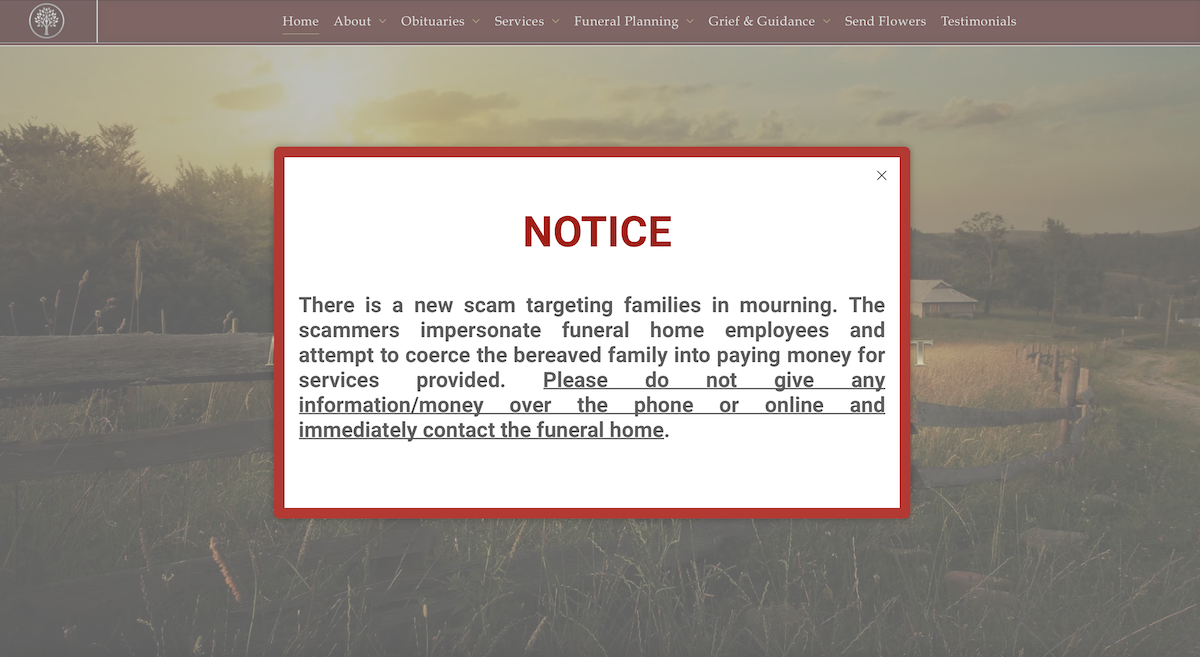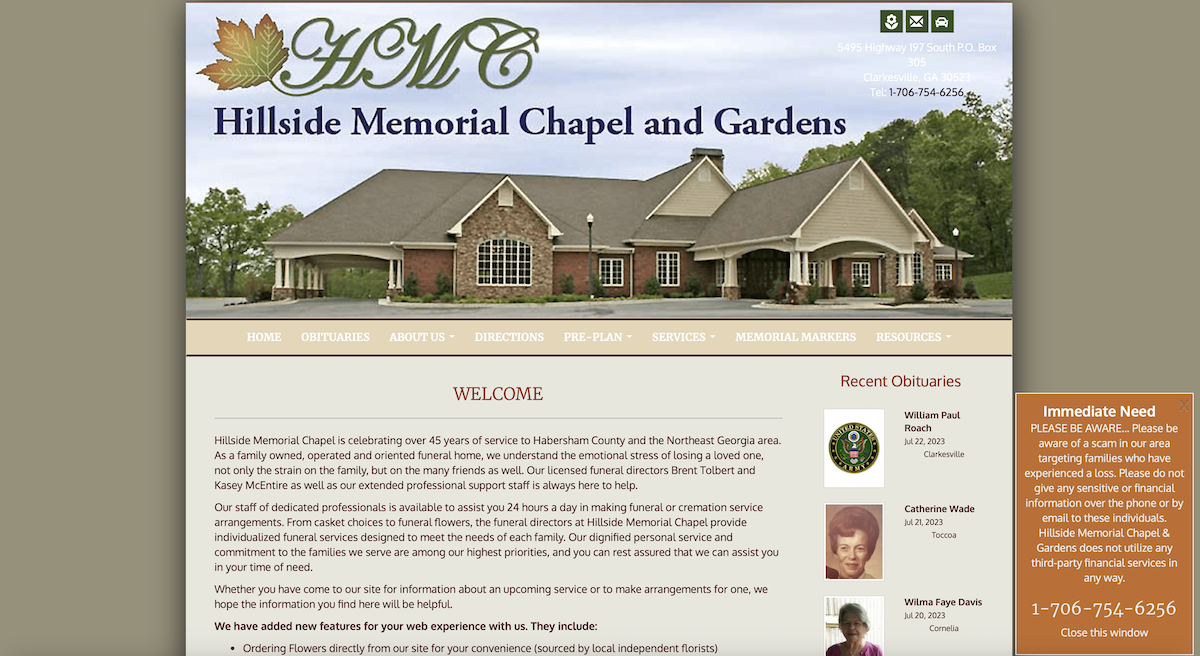
Nothing is sacred, at least where scammers are concerned. And this latest scam making the rounds is proof of that. The Federal Trade Commission (FTC) says it targets families in mourning.
Here’s how it works.
Scammers search the obituaries looking for families who’ve recently lost loved ones. They track down contact information, then contact the families by phone, pretending to be from the funeral home. The imposters threaten to cancel the funeral unless the family pays more money immediately.
The FTC and funeral homes warn, don’t be fooled!
Several local funeral homes are doing what they can to alert the public, posting notices on their websites urging people not to make any payments to anyone without first directly contacting the funeral home.
This scam is ‘widespread’
Sara Lee is the funeral director at McGahee-Griffin and Stewart Funeral Home in Cornelia. She and her colleagues have been warning the public about the phone scam for several weeks, ever since they were first made aware of it.
“We saw similar scam notices on other funeral home websites along with one of our families being contacted,” she says.
McGahee’s Assistant Manager Jason Corn urges people to follow this simple advice: “Do not make any payments or give out any other information over the phone.” If you receive a call asking for money, “immediately notify your funeral home.”

Hillside Memorial Chapel and Gardens in Clarkesville is also using its website to warn the public about funeral scams. Owner Brent Tolbert says recently, one of their clients was targeted with a different sort of scheme.
“We had a family solicited after sharing their loved one’s obituary on social media. They acted as if they were representing the funeral home from a “financing for accidents that may occur during a funeral” perspective. Thankfully this family knew something was abnormal about the phone call because they did not need nor ask for financial assistance, nor were they called from a local number.”
Tolbert adds, “We take our fiduciary relationships and responsibilities seriously and discuss private and financial matters in person.”
Funeral home directors say they’ve dealt with similar scams carried out by imposters through email, but the phone calling is new.
“This is widespread and not specific to one funeral home or area,” says Lee. “Everyone should be cautious anytime you are contacted for payment or information. If there are ever any doubts, you should contact your provider for verification, whether it be a funeral home or another type of business.”
How to avoid being scammed
The FTC put out a warning on its website saying, “If there was a Scammers Hall of Shame, this one would make the Top 10 List, without question.”
Here’s how to spot and avoid this funeral home scam:
Resist the pressure to act immediately. Honest businesses will give you time to make a decision. Anyone who pressures you to pay or give them your personal information is a scammer.
Contact the funeral home directly. Use a phone number that you know is real, not one you got from the scammer’s text, email, or phone call. If you don’t know it, you’ll find it on the General Price List you got from the funeral home.
Know how scammers tell you to pay. Scammers want to get your money immediately, and in a way that makes it hard to track them down and hard for you to get your money back. Never pay someone who insists you pay with a wire transfer, cryptocurrency, or a gift card. And never deposit a check and send money back to someone.
If someone tried to rip you off, report it to the FTC at ReportFraud.ftc.gov.







